 Dothan Wills & Probate Lawyers, West Virginia
Dothan Wills & Probate Lawyers, West Virginia
Sponsored Law Firm
-
 x
x

Click For More Info:
-
Schrader Companion Duff & Law, PLLC.
401 Main Street Wheeling, WV 26003» view mapAccident & Injury Law Knowledge, Integrity, Results
At Schrader Companion Duff & Law, PLLC., we are well aware of your rights, and are dedicated to getting you the compensation you and your loved ones deserve.
800-939-8771
Includes: Estate Administration, Living Wills, Wills
Sponsored Lawyers
1-3 of 3 matches
Estate Planning, Wills & Probate, Trusts, Divorce & Family Law, Adoption
Whether you have suffered an accident while on the job or suffered an injury during a car accident or semi truck accident, The Law Offices of Claude S. Smith III devote personal attention to your case. Our attorney and legal staff understand the pressure and emotional stress experienced by those involved in legal cases. We strive to bring personalized attention and care to every single client.
(more)


 Sandra K. Law Wheeling, WV
Sandra K. Law Wheeling, WV Practice AreasExpertise
Practice AreasExpertise

